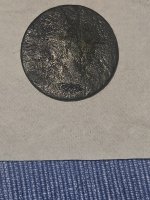Highmountain
Hero Member
WilliamTheFinder said:oh, I'm not suggesting they were stupider than us, if anything I'm saying the opposite:
What I'm saying is that the pyramids, zuggarats, easter island totems, Nazca Lines, British Burial Mounds and Aritifical Hills, Mesoamerican temples, and Indian Iron pillars were all constructed by the ingenuity of their respective civilizations*, who had no need for outside aide from aliens or supersmart proto-europeans to get the job done. Everything I've learned in my studies of ancient civilizations suggests that if people have lots of spare time and want to build something real big, they'll figure out a way.
You have a point though, Highmountain, I suppose I can't entirely rule out Aliens; It just seems to me that if we're truly searching for the Atlantis discussed by Plato, we should believe what he says before we accept the much later theories of a bunch of crystal-gripping spiritualists...no offense if any of you are part of the New Age movement.
I suppose I missed the part about super-smart Europeans being in the picture.
Can't say I ever heard that one.
A lot of times in history people just stumble onto things that work and some go forward from there. I forget which ancient Chinese I read once who gave the formula for carbon steel, and why. Had to do with tossing a slave into the molten vat. I don't recall the specific logic associated with doing it, but it worked and produced some excellent blades and didn't require any intervention from aliens to come up with it.
It's equally heartening to think somebody back there might have figured out how a dead slave could provide a power plant for a flying machine, which it might under the right circumstances.
But the flying machine digression provided a bolt-hole so's a person can side-step considerations of the planet surface ramifications of a continent or large island sinking like some wounded Bismark or Titanic anytime during human history.
Jack




